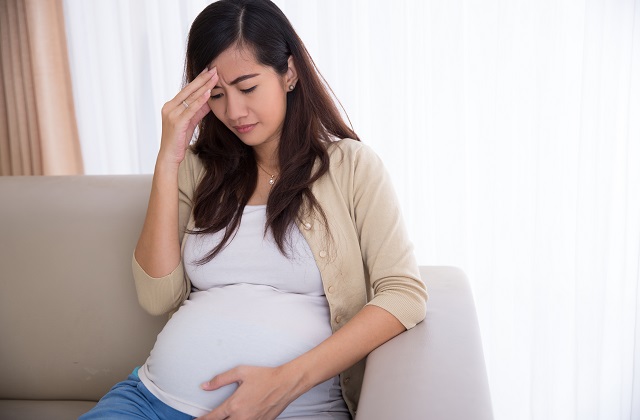Urinary incontinence during pregnancy
Urinary incontinence, which involves the involuntary loss of urine, is common during pregnancy. It can happen when pregnant women cough or sneeze.
Causes of urinary incontinence
Growing uterus pressurizes the bladder
As your baby grows, the growing uterus puts a lot of pressure on the bladder; urine may then involuntarily leak out. When you cough, sneeze, exercises or laugh, these physical movements exert further pressure on your bladder which may cause the urine to leak out.
Hormones change
When you urinate, the muscles around your urethra relax, which allows urine to flow from your bladder out of your body. When you finish, the muscles around your urethra contract which holds off any urine flow until you want to empty your bladder again. During pregnancy, the hormonal change affects the lining of your bladder and urethra which interferes with the usual way your urethra relaxes and contracts
Overactive Bladder
Urinary incontinence during pregnancy can also be the result of an overactive bladder. A pregnant woman who has an overactive bladder needs to urinate more than usual because the bladder has uncontrollable spasms.
How to Avoid Urinary Incontinence
There several measures that can be taken to avoid discomfort and embarrassment.
Schedule your bathroom breaks.
When you are pregnant, you will need to urinate more often. You can plan to use the bathroom at least every two hours. Your bladder will not be too full for urine to leak out when you laugh or cough.
Avoid carbonated drinks, coffee, or tea.
These beverages may make you feel like you need to use the bathroom more often as these beverages are the diuretic. Try drinking more water or decaffeinated drinks.
Maintain a healthy weight gain
Extra weight, especially around your abdomen will increase pressure on the bladder. Studies have shown that women who gain an excessive weigh when they get pregnant are more likely to experience urinary incontinence.
Practice Kegels
Kegel exercises help to strengthen the pelvic floor and help you avoid leakage. You may refer to Kegels Exercises on how to practice it.
Lastly, to relieve any embarrassment or discomfort, expectant mothers may try sanitary napkins that is for urinary incontinence.
It takes a village to raise a child !
Join our Facebook Group For 2023 SG Mummies or Facebook Group For 2024 SG Mummies.









